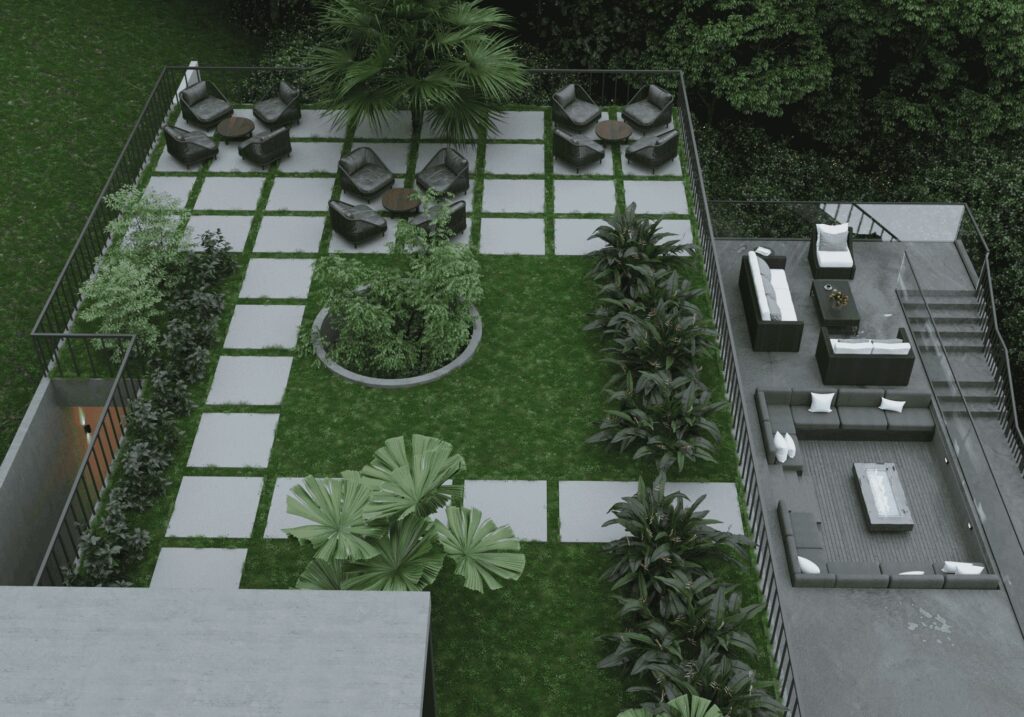Sustainable living is becoming increasingly important globally, and Ghana is no exception. The real estate market is experiencing a significant impact as people embrace this trend.
Aburi has become one of the most sought-after locations for real estate developers. This is due to its location, serenity, and cool climate. Furthermore, eco-friendly properties have risen in popularity in the town.
This article explores the appeal of sustainable living in Aburi and the rise of eco-friendly real estate developments.
The Appeal of Aburi for Sustainable Living
Aburi, a town in the eastern region of Ghana, has become the ideal location for professionals in Ghana and the diaspora looking for eco-friendly environments for relaxation and sustainable living.
There are hills surrounding Aburi, making it a serene location for eco-friendly buildings. The town’s cool temperature reduces the use of air conditioners, which are quite prevalent in the capital considering the humid nature, reducing energy use.
As part of Ghana’s climate change policy, Ghana signed the Paris Agreement, which mandates countries to reduce carbon emissions. Such commitments ensure real estate markets follow through with their share in achieving these goals.

The Rise of Eco-Friendly Real Estate
Sustainable real estate aims to minimize environmental impact while enhancing the quality of life for residents. The key features of Eco-friendly real estate include;
Green Building Materials
These include the use of bamboo and other sustainable materials, which have recently become the core of real estate. The design is to minimize environmental impact while improving quality and comfort.
Water Management Systems
Proper and effective water management systems are eco-friendly. These include advanced plumbing systems, rain harvesting, water conservation, and reuse to reduce waste and promote conservation.
Renewable Energy
In building eco-friendly buildings, energy from natural resources such as the wind, tides, and sun can be used for cooling, water heating, and electricity generation. This makes renewable energy a pivotal part of sustainable living.
Benefits of Choosing Eco-Friendly Real Estate
Sustainable living comes with numerous advantages. These benefits are discussed below.
Healthier Environment
The real estate market poses many challenges, such as pollution, waste, gas emissions, and resource depletion. These factors affect healthy living. However, adopting eco-friendly construction will reduce pollution and provide access to green spaces, promoting healthier environments.
Cost Savings
A report by the Green Building Council shows that savings from sustainable construction can increase from 25% to 35% for energy savings and increase water savings to 39%. This is as compared to conventional buildings.
Challenges of Eco-Friendly Real Estate Developments
As more real estate developers embrace eco-friendly buildings in Ghana, they may face some challenges. Some of these challenges are highlighted below.
Lack of awareness
Even though some Ghanaians are now environmentally conscious, a majority still need more education and awareness about sustainable living. As the interest rises, real estate developers will also see the need to invest in eco-friendly real estate developments.
Meanwhile, many individuals remain unaware of how their daily lifestyle or choices affect the environment and the long-term benefits of eco-friendly practices. However, as conversations around sustainable lifestyles continue to grow and more intentional individuals recognise the need for a greener lifestyle, the demand for sustainable housing will grow.
This shift will influence real estate developers to adopt sustainable practices in their projects.
High Costs
Investing in eco-friendly real estate in the long term brings some benefits. However, starting it may be highly costly and worth it.
Governmental Frameworks
A wide range of challenges can hinder eco-friendly real estate development, such as unfavourable policies, bureaucracy, and weak enforcement of environmental laws.
Tackling these challenges requires cooperation among developers, government agencies, and investors. Incentives such as tax cuts for eco-friendly construction projects and community awareness initiatives can help to embrace sustainable lifestyle practices.
The Way Forward
As the world gears towards a more green environment, real estate developers must strive to do their part by incorporating sustainable features into their projects.
The rise of eco-friendly buildings in Aburi reflects a growing shift towards sustainable living both in Aburi and Ghana.
If you’re interested in sustainable living, consider investing in ONO Aburi, a real estate development in Aburi featuring 6 luxurious units.
Our project offers extravagant living with a greener lifestyle for those looking for a quiet, serene place away from busy cities.
